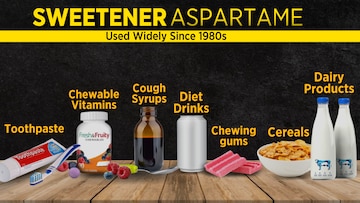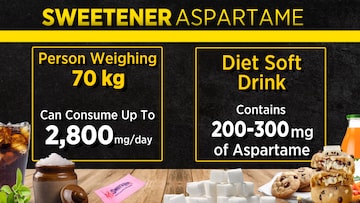The WHO has said there is not enough evidence to establish if the 40 year old artificial sweetener aspartame causes cancer as it continues to monitor new evidence. The International Agency for Research on Cancer or IARC and Joint Expert Committee on Food Additives or the JECFA carried out independent but complementary reviews on the chemical based sweetener to assess its health risks.
Aspartame has been used widely since in the 1980s and is found in a variety of household items and food products ranging from toothpastes, chewable vitamins, cough syrups to diet drinks, chewing gums, cereals, dairy products among others.
The IARC which evaluated aspartame for the first time classified the sweetener as ‘possibly carcinogenic’. The artificial sweetener has now been clubbed with 300 other agents that the IARC thinks is possibly carcinogenic but has limited evidence supporting the linkage to it. This ranges from aloe vera, picked vegetables to lead, carbon black and diesel fuel.
The JECFA conducted their review on aspartame for the third time and said there is no need to cut daily intake. A person can consume upto 40 mg of aspartame per kg of body weight.
That means a person weighing 70 kg can consume 2800 mg of aspartame a day. A diet soft drink contains 200 to 300 mg of aspartame so a 70 kg individual will only exceed the daily limit of the sweetener if they consume 9 to 14 cans of the diet soft drink in a day.
Lastly, the WHO has pointed that while safety is not a major concern at the doses which are commonly used of the sweetener the potential effects need to be investigated by more and better studies to assess whether it does in deed cause cancer the disease which kills in one in six people every year.
First Published: Jul 14, 2023 8:27 AM IST





